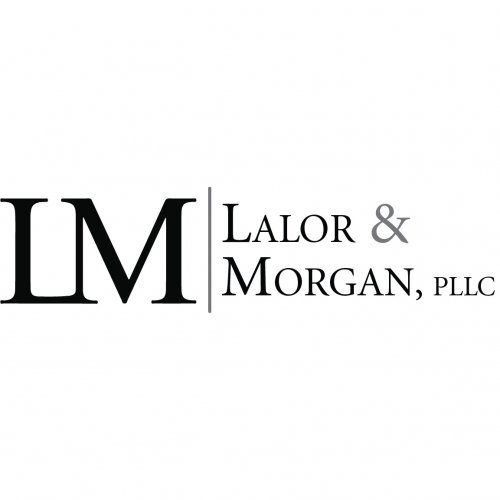Best Banking & Finance Lawyers in Mississippi
Share your needs with us, get contacted by law firms.
Free. Takes 2 min.
Or refine your search by selecting a city:
List of the best lawyers in Mississippi, United States
United States Banking & Finance Legal Articles
Browse our 1 legal article about Banking & Finance in United States written by expert lawyers.
- United States Student Loan Repayment 2026: Post-SAVE Options
- By 2026, most federal borrowers will be in long-term repayment with interest fully accruing again, and several "temporary" relief rules are set to expire. If legal or political attacks weaken SAVE, the original Income-Based Repayment (IBR) plan is likely the most durable, legally grounded income-driven repayment (IDR) option still available.... Read more →
About Banking & Finance Law in Mississippi, United States
Banking and finance law in Mississippi covers the regulation, operation, and transactions of financial institutions and the services they provide. This area of law ensures compliance with both federal and state statutes regarding banking activities, lending practices, borrower rights, and financial contracts. Mississippi's banking landscape includes state-chartered banks, national banks, credit unions, mortgage lenders, and consumer finance companies, all governed by an intersection of local and federal regulations. Legal matters may arise from commercial lending, consumer loans, debt collection, dispute resolution, regulatory compliance, and real estate financing.
Why You May Need a Lawyer
Individuals and businesses may require legal guidance in banking and finance for numerous reasons. Common scenarios include:
- Disputes with banks regarding loan terms or account activity
- Understanding and negotiating loan agreements or lines of credit
- Facing foreclosure or repossession proceedings
- Issues related to improper credit reporting or debt collection practices
- Regulatory compliance for banks and financial service providers
- Navigating bankruptcy or restructuring debt
- Complex real estate financing disputes
- Dealing with alleged fraud or identity theft involving financial institutions
- Business acquisitions dependent on secured lending or commercial banking arrangements
- Enforcement or defense of security interests under the Uniform Commercial Code
A lawyer experienced in Mississippi banking and finance law can help interpret relevant legislation, protect your rights, and pursue the most favorable outcome in disputes or transactions.
Local Laws Overview
Banking and finance in Mississippi are regulated by a combination of state and federal laws. Some key local considerations include:
- The Mississippi Department of Banking and Consumer Finance supervises state-chartered banks, credit unions, and non-depository financial institutions.
- The Mississippi Consumer Lending Act governs consumer loans and protects borrowers from predatory lenders by establishing maximum interest rates and disclosure requirements.
- Foreclosure processes in Mississippi are typically non-judicial, meaning lenders can foreclose on a property without court involvement under certain conditions, but strict notice requirements must be met.
- Usury laws in Mississippi set limits on the amount of interest financial institutions and lenders may charge.
- Mortgage lending is regulated by both state law and federal statutes, such as RESPA (Real Estate Settlement Procedures Act) and TILA (Truth in Lending Act).
- The state follows the Uniform Commercial Code for secured transactions and negotiable instruments, impacting both personal and business banking activities.
- Local law requires certain consumer disclosures and clear communication related to financial products and fees.
Adherence to these laws is essential for both lenders and borrowers in Mississippi to ensure the legality and enforceability of banking and finance arrangements.
Frequently Asked Questions
What state agency oversees banks and lenders in Mississippi?
The Mississippi Department of Banking and Consumer Finance regulates and supervises state-chartered banks, credit unions, mortgage lenders, and other financial service providers operating within Mississippi.
What are my rights if I am facing foreclosure in Mississippi?
Mississippi primarily uses non-judicial foreclosure, requiring the lender to provide proper notice and follow specific procedural steps before selling your property. You may have redemption rights or options to stop the foreclosure, and consulting an attorney can help you understand your options.
What is the maximum interest rate a lender can charge in Mississippi?
Interest rate limits are set by Mississippi's usury laws and can vary depending on the loan type. For most consumer loans, the maximum rate is typically 8 percent per year unless specified otherwise by law, but exceptions apply for certain financial institutions and types of credit.
Can I sue my bank for unfair or deceptive practices?
Yes, if you believe your bank has engaged in unlawful, unfair, or deceptive practices, you may have grounds to file a complaint with state regulators or pursue legal action, depending on the circumstances.
What legal protections exist for consumers dealing with debt collectors in Mississippi?
Consumers in Mississippi are protected by the federal Fair Debt Collection Practices Act, which prohibits debt collectors from using abusive, unfair, or deceptive practices. Mississippi law also imposes additional requirements on collection agencies and debt buyers.
How does bankruptcy affect my banking relationships in Mississippi?
Filing for bankruptcy can affect your ability to obtain credit, cause bank account restrictions, and may result in the closure of some accounts. However, your legal rights are protected, and certain funds may be exempt from creditors. Consulting a bankruptcy attorney is advised.
Are there special laws governing payday loans or title loans in Mississippi?
Yes, Mississippi law regulates payday lending and title loans, including maximum loan amounts, allowable fees, and disclosure requirements, and provides certain consumer protections against rollovers and repeat borrowing.
What should I do if I notice unauthorized activity on my bank account?
Report unauthorized transactions to your bank immediately. Federal law limits your liability for unauthorized transfers if reported quickly. If your bank does not resolve the issue, you may need legal assistance or to report the incident to regulatory bodies.
Do Mississippi laws protect business borrowers in the same way as consumers?
Business borrowers do not receive the same protections as consumers under many lending and banking laws. However, legal remedies may be available for contract disputes, fraud, or wrongful practices.
How do I file a complaint about a bank or lender in Mississippi?
Complaints can be filed with the Mississippi Department of Banking and Consumer Finance, the federal Consumer Financial Protection Bureau, or other appropriate regulatory agencies. Documentation of the issue and communication with the institution should be preserved.
Additional Resources
If you need more information or help regarding banking and finance in Mississippi, consider the following resources:
- Mississippi Department of Banking and Consumer Finance - Oversees state-chartered banks and financial service entities.
- Consumer Financial Protection Bureau (CFPB) - Provides tools and resources for financial consumers and accepts complaints.
- Federal Deposit Insurance Corporation (FDIC) - Offers educational materials for bank customers and deposit insurance guides.
- Mississippi Bar Association - Can help you locate attorneys specializing in banking and finance law.
- Legal Services Corporation of Mississippi - Provides legal aid for qualifying individuals in financial and consumer matters.
- Better Business Bureau of Mississippi - For complaints regarding service issues with financial institutions.
Next Steps
If you believe you need legal assistance related to banking or finance in Mississippi, start by gathering all relevant documents, such as account statements, contracts, correspondence, and any notices you have received. Identify the key issues you are facing, such as foreclosure, loan disputes, or unfair practices. Consider consulting with an attorney experienced in Mississippi banking and finance law, who can provide guidance on your rights, obligations, and the best course of action. You may use resources from the Mississippi Bar Association to find a qualified lawyer. If your issue involves a regulatory question or complaint, reach out directly to the appropriate regulatory agency. Taking prompt action is often important to protect your rights and secure the best possible outcome.
Lawzana helps you find the best lawyers and law firms in Mississippi through a curated and pre-screened list of qualified legal professionals. Our platform offers rankings and detailed profiles of attorneys and law firms, allowing you to compare based on practice areas, including Banking & Finance, experience, and client feedback.
Each profile includes a description of the firm's areas of practice, client reviews, team members and partners, year of establishment, spoken languages, office locations, contact information, social media presence, and any published articles or resources. Most firms on our platform speak English and are experienced in both local and international legal matters.
Get a quote from top-rated law firms in Mississippi, United States — quickly, securely, and without unnecessary hassle.
Disclaimer:
The information provided on this page is for general informational purposes only and does not constitute legal advice. While we strive to ensure the accuracy and relevance of the content, legal information may change over time, and interpretations of the law can vary. You should always consult with a qualified legal professional for advice specific to your situation.
We disclaim all liability for actions taken or not taken based on the content of this page. If you believe any information is incorrect or outdated, please contact us, and we will review and update it where appropriate.
Browse banking & finance law firms by service in Mississippi, United States
Mississippi, United States Attorneys in related practice areas.
Browse banking & finance law firms by city in Mississippi
Refine your search by selecting a city.











